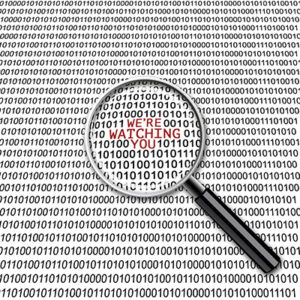The digital age has made it possible to monitor nearly every aspect of an employee’s life, from reading email messages to tracking an employee’s physical location. Companies have many legitimate reasons for monitoring customer telephone calls or checking employee computers, which range from ensuring good customer service to addressing workplace theft to confirming compliance with speed limits and other laws. In this article, we are going to discuss the steps you should take to stay within the legal boundaries if you’re checking in on your employees.
Applicable Laws
Like many other aspects of employment law, private employers need to be aware of federal, state and local laws in the area of workplace privacy. Some of the key federal laws to keep in mind are the Stored Communications Act, which (unsurprisingly) applies to stored communications, and the Electronic Communication Privacy Act, which applies to intercepting electronic communications in transit.
While these laws typically translate to mean you can’t look at another person’s email messages or eavesdrop on other private communications, there is an exception that allows a company to monitor its systems for a business purpose. For example, in one case, the Supreme Court held that a police officer had no expectation of privacy in text messages he sent on an employer-owned pager because, among other things, the employer’s policy stated it reserved the right to monitor all communications on its equipment.
State laws may also be relevant. For example, an Illinois criminal statute prohibits using an electronic device on a vehicle to track the location or movement of a person unless the tracking is done by consent, by a law enforcement agency or by a company that is tracking an employee-driven vehicle it owns.
Other states like California, Connecticut, Delaware and Texas also have laws regarding GPS tracking, but those statutes can vary. Thus, it’s a good idea to talk to an employment attorney who practices in the state(s) in which you operate to ensure you’re aware of the rules you need to follow.
Commonsense Principles
In general, there are some important questions you should consider when thinking about employee privacy in the workplace. One is whether the employee has a legitimate expectation of privacy. If something belongs to the company, then you usually have a right to inspect it or track it. If it’s in a public area, then there is little expectation of privacy. And, if the company has a policy stating that company property and equipment is subject to search at any time without notice, then the company is usually on fairly solid ground. However, if you’re monitoring activity that takes place off the clock, off your premises and on private equipment, you may want to reconsider doing so.
Another common question is whether the employer’s reason for performing the search outweighs an employee’s interest in privacy. For example, searching an employee’s desk will be more reasonable if the employee was seen stealing company property.
So, let’s discuss a few more specific examples.
Let’s say you’ve had a problem with employee theft recently, so you installed cameras to monitor your shop. Is that lawful? Well, it depends on the state in which your shop operates. Some states have restrictive laws about when you can videotape others and what type of warning you must provide in advance. The location also matters. As mentioned above, recording on the shop floor is going to be presumptively more reasonable than recording in the breakroom or via the webcam on the employee’s laptop, for example, as there is more of an expectation of privacy in those non-public areas.
It can also make a difference if your cameras record “video only” vs. “video and audio.” Some states permit the recording of a conversation when one party to the conversation consents (like your employee), or when there is no expectation of privacy (i.e., the speaker is in a public place). However, other states like California require the consent of all parties before a conversation may be recorded if it’s reasonable for the participants to believe it’s a private conversation.
Can you monitor your employees’ work email accounts and telephone calls? Again, it depends. Generally speaking, monitoring an employee who is on company time and using company equipment is going to be found reasonable.
However, the safest practice is to implement a policy expressly stating that your employees have no expectation of privacy on company property and equipment. If an employee knows from the outset that all company-related communications can and will be monitored without further notice, then it’s less likely he or she will be surprised by it or claim an invasion of privacy.
What about GPS tracking of your employees? Almost every cell phone in use has the ability to be tracked via GPS. Further, many company vehicles are equipped with GPS, enabling employers to know every place an employee visits, both on and off the clock. Tracking employees offsite is helpful for companies with many employees in the field because it helps to ensure efficiency and safety. It could also provide information to ensure that employees are properly paid for all the time that they work. However, it becomes less reasonable when the tracking continues when the employee is off the clock or when the employee is unaware that the GPS is being used. Further, you should limit who has access to the information gained via GPS or video surveillance, and ensure you securely store the information.
Conclusion
Before you roll out GPS tracking or video surveillance, think through the implications of the monitoring that you’re considering. Make sure you have a solid business reason for it, and consult with a local attorney beforehand. Also, keep in mind that just because you can do something, does not mean it’s a good idea.
As with so many other areas of employment law, a good policy is invaluable. Your policy should clearly and simply describe how and when communications and activities will be monitored. It should clearly state that employees have no expectation of privacy on company equipment.
You should also include guidelines about what employees may and may not do. For example, can they make private calls? Check personal email accounts or social media? If an employee could be disciplined based on information acquired from a monitored telephone call or GPS tracking, then you should include that in the policy, too.
I also recommend that you get your employees’ written consent to the policy to avoid misunderstandings in the future. Finally, make sure your IT department and management know how to handle issues that may arise, so they will follow your policies.
Although meeting your business needs while respecting employees’ privacy can be tricky, following these tips will help ensure that both the company and the employee are on the same page when it comes to monitoring their activity.
Article courtesy Shop Owner.

















